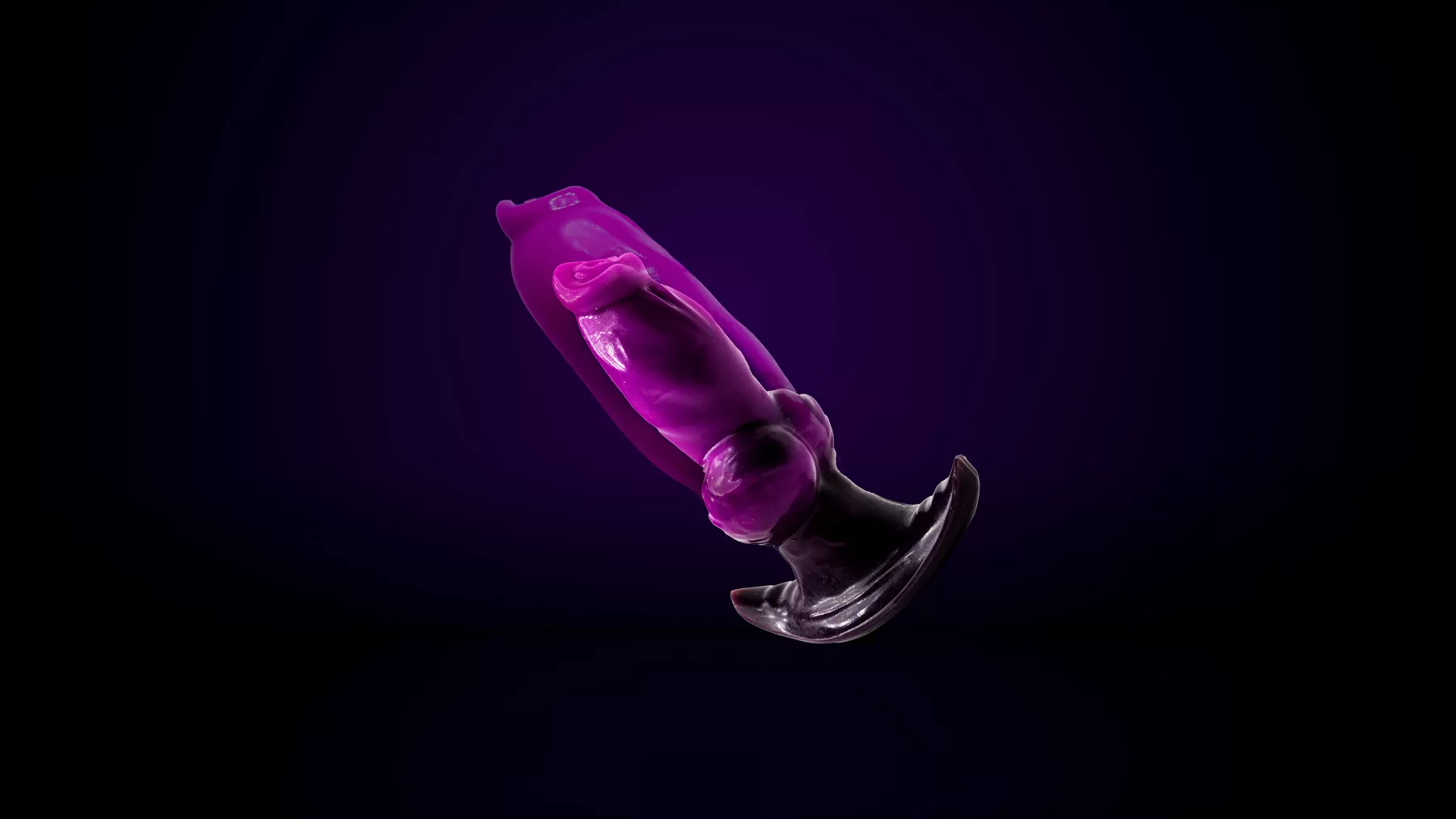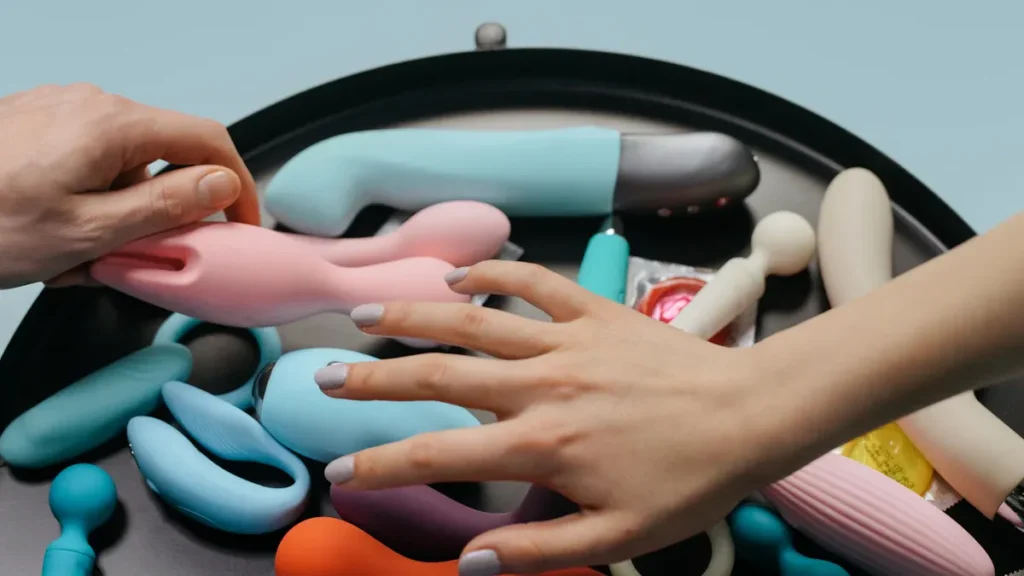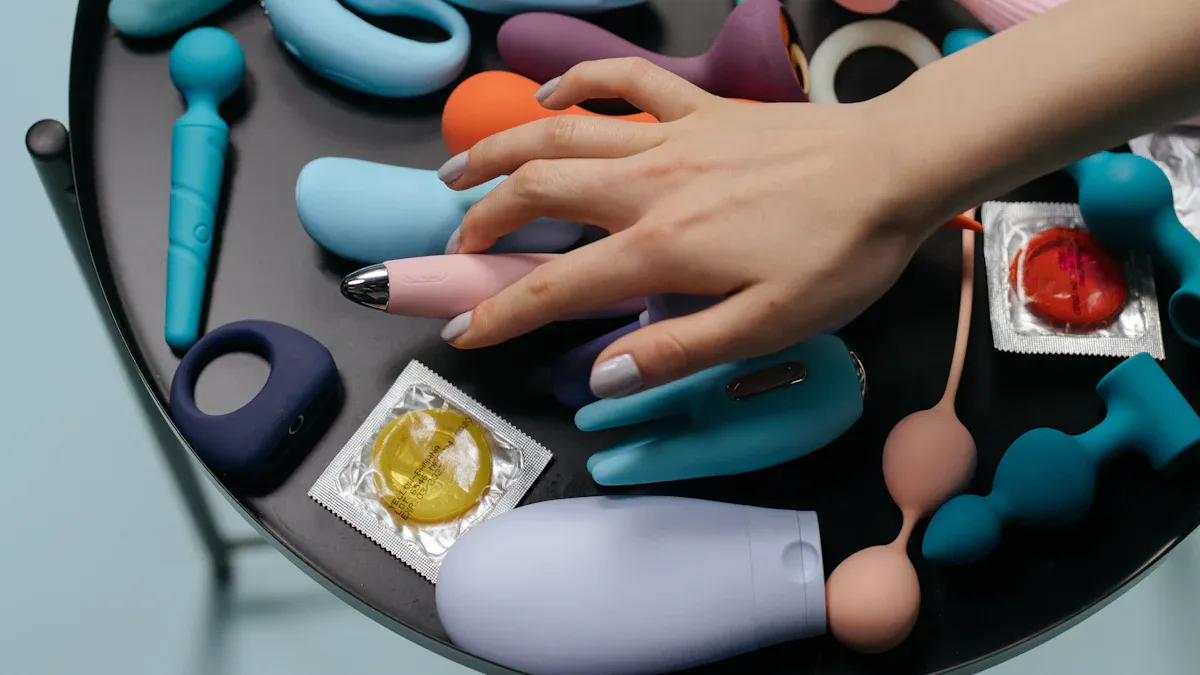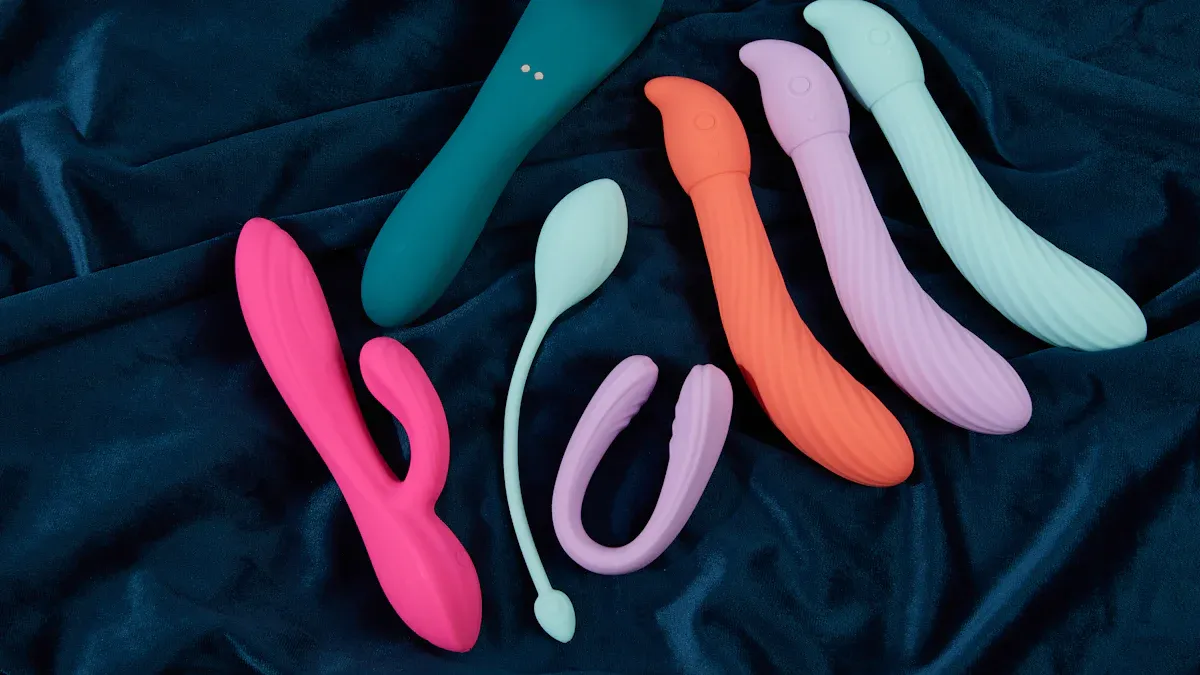Are PVC Dildos Safe to Use in 2025
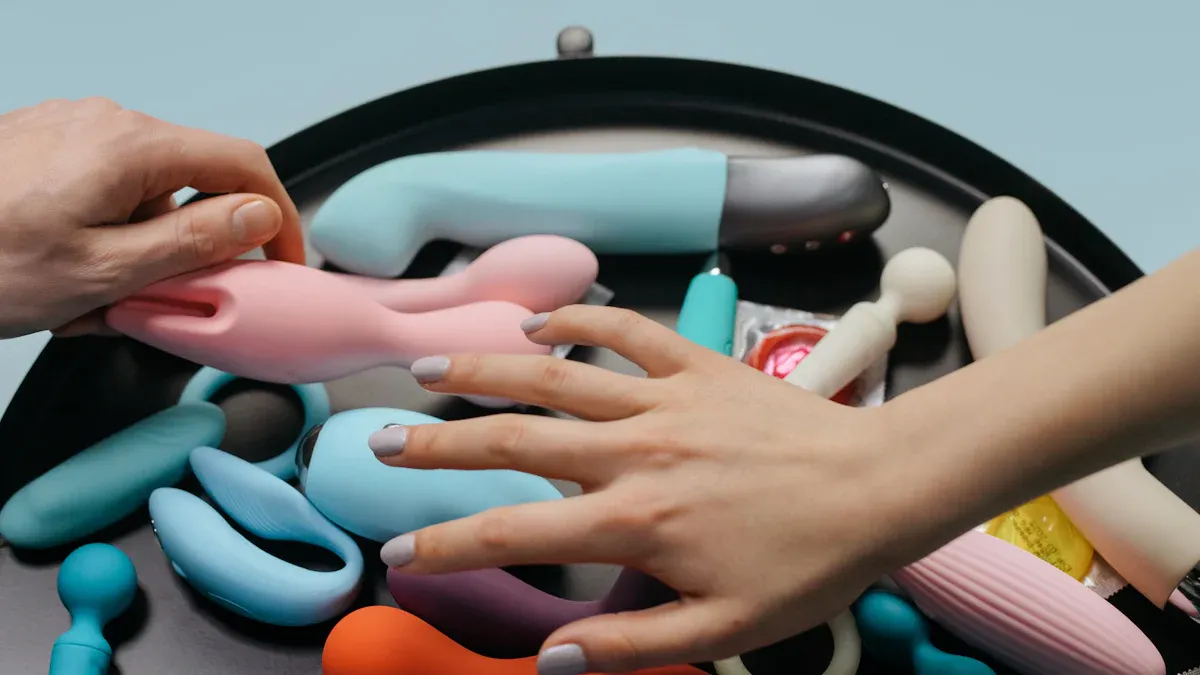
When you ask if pvc dildos are safe in 2025, the answer is still no. There are real risks you should know about. Many adult toys made from PVC have harmful chemicals called phthalates. These chemicals can mess up hormones. They can cause health problems like early puberty, asthma, and even cancer. The surface of a dildo is porous. This means bacteria and mold can hide inside it. It is hard to clean and not safe for your body. Even if you use condoms or pick phthalate-free choices, pvc dildos are still risky. Safer adult toys are made from silicone, glass, or metal. Heated Dildos, bad dragon dildo, and Monster Dildos made from body-safe materials are safer to use.
What Are PVC Dildos
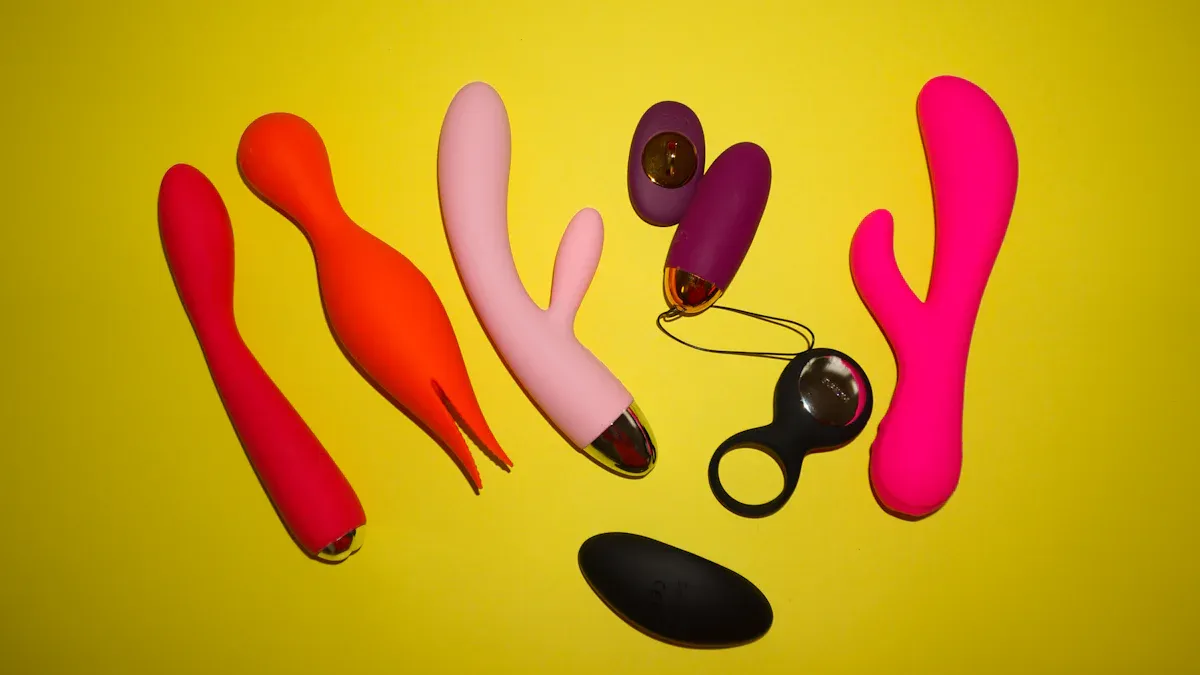
PVC Material Basics
There are many adult toys made from different things. PVC dildos are special because of how they feel and look. PVC stands for polyvinyl chloride, which is a kind of plastic. Companies use PVC to make lots of sex toys, like dildos. This plastic feels smooth and soft, which many people like. PVC dildos come in many shapes and sizes. PVC is bendy, so makers can create toys for many needs.
PVC sex toys usually cost less than silicone, glass, or metal ones. This makes them a good choice if you want to try something new but not spend much. But the quality of PVC is not always the same. Some pvc dildos are softer, and some are harder. How the dildo feels depends on how it is made and what is added to it.
Note: PVC has tiny holes in it. These holes can trap bacteria, so cleaning is harder than with other materials.
Why PVC Is Used
You may wonder why PVC is used in so many adult toys. There are a few main reasons:
PVC is cheap, so you can buy pvc sex toys for less money.
It is easy to shape, so companies can make many kinds of dildos.
PVC dildos feel soft, and many people like that.
You can use water, silicone, or oil lubricants with pvc sex toys.
PVC is strong, so your dildo can last if you care for it.
Many people pick pvc dildos because they are easy to find and come in many types. The quality can change, so you should look for good brands and check what they use. Even though pvc sex toys have problems, like being porous and having chemical risks, people still buy them because they are cheap and flexible.
Health Risks of PVC Dildos

Porosity and Bacteria
When you use pvc sex toys, you face real hygiene problems. The surface of a pvc dildo is porous. This means it has tiny holes that you cannot see. Bacteria, mildew, and fungi can enter these holes and start to grow. Even if you wash your dildo with soap or soak it in bleach, you cannot remove all the germs. The pores trap water and microbes inside the material. This makes it easy for bacteria to survive and multiply. Over time, these germs can disrupt your body’s natural balance. You might get infections or irritation. Experts say that even antibacterial wipes cannot clean deep inside the pores. Because of this, you should never share pvc dildos with others. Using a condom over the toy can help, but it does not make it completely safe.
Note: Porous materials like pvc sex toys trap bacteria and viruses. You cannot fully sterilize them, so they are not safe for repeated or shared use.
Phthalates and Chemical Exposure
Many pvc sex toys, especially soft ones, contain plasticizers called phthalates. These chemicals make the dildo soft and flexible. Phthalates are not tightly bonded to the plastic. Over time, they can leak out of the toy and enter your body. This chemical exposure is one of the biggest health risks of pvc. Phthalates can disrupt your hormones. They may cause early puberty, infertility, or even cancer. Some studies link phthalates to asthma and other serious health concerns. The risk is higher if you use the dildo often or for long periods. Even if a product says “phthalate-free,” it may still contain other toxic chemicals. You should always check the label, but remember that not all claims are true. The potential health risks from chemical leaching make pvc dildos a poor choice for anyone who cares about safety.
Soft pvc dildos are the most dangerous because they use more phthalates.
Hard pvc is less common in adult toys, but it can still be porous and unsafe.
Non-porous materials like silicone, glass, and metal do not have these chemical risks.
Material Breakdown Over Time
PVC sex toys do not last forever. As you use your dildo, the material starts to break down. Heat, sunlight, and even your body’s natural fluids can speed up this process. When pvc breaks down, it releases more toxic chemicals. These include phthalates, dioxins, and hydrogen chloride. These chemicals are harmful to your body and the environment. The breakdown also makes the toy even more porous. This means more bacteria can get inside, and cleaning becomes even harder. The health risks of pvc increase as the toy gets older. You may notice changes in color, smell, or texture. These are signs that the dildo is no longer safe to use. Always replace your pvc sex toys at the first sign of wear.
Tip: If your pvc dildo feels sticky, smells bad, or changes color, stop using it right away. These are signs of chemical breakdown and increased health concerns.
Hard vs. Soft PVC: What’s Safer?
You might wonder if hard pvc dildos are safer than soft ones. Soft pvc, also called jelly, is the most porous and uses the most plasticizers. This makes it the least safe option. Hard pvc is less flexible and used less often in adult toys. Both types are still porous and can trap bacteria. Both can release toxic chemicals over time. No type of pvc dildo is truly safe for your body. For the best safety, choose non-porous materials like silicone, glass, or metal.
Phthalate-Free PVC and Safety Claims
What “Phthalate-Free” Means
If you see “phthalate-free” on pvc sex toys, you might think they are safe. This label means the toy does not have phthalates. Phthalates are chemicals that make plastic soft. Many people worry about phthalates because they can hurt your hormones. They can also cause other health problems. Some countries do not allow phthalates in kids’ toys for this reason.
But this label does not always mean the toy is safe. Companies often use other chemicals instead of phthalates. DOTP is one chemical they use a lot. DOTP is thought to be safer, but experts say we do not know enough about it yet. There is not enough research to know if DOTP is totally safe. Also, there are no strict rules for labeling phthalate-free pvc sex toys. Companies might use the label even if they do not check for all harmful chemicals.
Note: Most tests for phthalate-free claims use biological safety tests, not chemical tests. These tests look for things like cell damage or hormone changes. They do not always show if phthalates or other chemicals are in the toy.
Tests like NRU cytotoxicity, DPRA, and YES/YAS are used on pvc sex toys.
These tests check for how the toy affects living cells, not for certain chemicals.
There are no set chemical tests for phthalate-free claims.
Labels can be wrong or confusing, so read them carefully.
Are Phthalate-Free PVC Dildos Safe
You might ask if phthalate-free pvc dildos are really safe. New studies show many phthalate-free pvc sex toys do not have phthalates. This is better for safety. But these toys still use other chemicals like DOTP. Scientists are not sure if these new chemicals are safe, especially if you use the toy a lot. Some of these chemicals can still leak out and get into your body.
Experts say the porous surface of pvc sex toys is still a big problem. Even if a toy is phthalate-free, germs can hide in the tiny holes. This makes cleaning very hard and raises the chance of infection. You should never share these toys or use them in more than one place on your body.
Experts say phthalate-free pvc dildos are not safe for inside your body because of their porous surface.
Some harmful chemicals used to make pvc, like vinyl chloride, can cause cancer and other health problems.
Labels are not always right, so experts say to pick non-porous, body-safe materials like silicone, glass, or stainless steel.
Cleaning these toys well is almost impossible, so sharing or using them in different places is risky.
If you want to be safest, choose toys made from non-porous materials. These are easier to clean and do not leak harmful chemicals. Always check the labels and buy from brands you trust.
How to Use PVC Dildos Safely
Using Condoms
If you choose to use PVC adult toys, you should always use a condom over the dildo. This step helps protect your body from bacteria and harmful chemicals. PVC dildos have a porous surface, so germs and toxins can hide inside. A condom acts as a barrier and lowers the risk of infection. You should use a new condom each time you use the toy. This practice keeps your hygiene at a higher level and makes the experience safer. While condoms help, they do not make PVC dildos completely safe. The best way to protect your health is to pick non-porous adult toys made from silicone, glass, or stainless steel.
Tip: Never share your PVC dildo with others, even if you use a condom. Sharing increases the risk of spreading bacteria and other germs.
Cleaning Tips
Good hygiene is key for dildo safety. After each use, wash your PVC dildo with warm water. Avoid harsh chemicals like bleach, alcohol, or household cleaners. These can damage the toy and do not remove all bacteria. You can use a mild soap or a cleaner made for adult toys, but gentle washing with water is most important. Let the dildo air dry before you store it. If the toy feels sticky, you can dust it with a little cornstarch to keep it smooth. Remember, PVC is porous, so you cannot make it fully hygienic. Cleaning helps, but it does not remove all risks.
Wash with warm water after every use.
Avoid strong cleaners.
Let the toy dry completely before storing.
Use condoms to add a layer of safety.
When to Replace
You should check your PVC dildo often for signs of wear. Look for cracks, tears, changes in color, or a bad smell. These signs mean the toy is breaking down and is no longer safe. Damaged dildos can trap more bacteria and lose their hygienic properties. If your dildo has any damage, replace it right away. There is no set time for how long a PVC dildo lasts. The lifespan depends on how often you use it and how well you care for it. Always choose safety over saving money. If you want a more hygienic and safe option, switch to adult toys made from medical-grade silicone, glass, or metal.
Note: Regular inspection and good hygiene help you enjoy your adult toys while lowering health risks. Choosing safer materials gives you better peace of mind about dildo safety.
Body Safe Sex Toys and Alternatives
Silicone Sex Toys
Silicone sex toys are a safer and cleaner choice. Platinum silicone does not have tiny holes, so germs cannot hide. This makes cleaning much easier for you. Silicone is safe for most people and does not cause allergies. It does not have phthalates, so you avoid many health problems. Silicone toys last a long time and stay smooth. Many people trust silicone because it is body-safe and meets safety rules.
Tip: Pick platinum silicone when you want the safest sex toys. This kind gives you the best quality and safety.
Glass and Metal Options
Glass and metal sex toys are also safe and strong. Both have smooth surfaces that do not trap germs. You can clean them easily and even make them extra clean by sterilizing. Glass toys are made from borosilicate glass, which is very tough. Metal toys use stainless steel or aluminum that is safe for your body. These toys last a long time and keep their shape. You can heat or cool glass and metal toys for new feelings, which makes them fun.
Glass and metal do not let bacteria grow.
You can sterilize them to make them very clean.
They do not have bad chemicals like PVC.
Choosing Body Safe Products
Always check for good quality when you buy sex toys. Look for labels that say the toy uses safe materials like medical-grade silicone, borosilicate glass, or stainless steel. Check for marks like ISO 13485, CE Marking, or FDA rules. These show the toy follows safety laws. Do not buy toys with phthalates or unknown stuff inside. Good brands tell you what is in the toy and give safety tips. Use this table to compare different materials:
Material Type | Characteristics | Safety Compared to PVC |
|---|---|---|
Medical-Grade Silicone | Non-porous surface, hypoallergenic, easy to clean | Safer: no harmful chemicals, easy to sterilize |
Glass (Borosilicate) | Non-porous surface, sterilizable, smooth | Safer: fully sterilizable, no toxins |
Stainless Steel | Non-porous surface, durable, easy to clean | Safer: no harmful additives |
PVC (Jelly Rubber) | Porous, may contain phthalates, hard to clean | Less safe: harbors bacteria, chemical risks |
Note: Better quality means safer and longer-lasting toys. Always pick body safe sex toys with smooth, non-porous surfaces for the best results.
You should have adult toys that protect your health. In 2025, PVC dildos are still risky. They can let out chemicals and let bacteria grow. Health experts say to pick toys made from body-safe materials like medical-grade silicone, glass, or stainless steel. These choices do not have tiny holes, so they are easy to clean. They also do not let out bad chemicals. Many people feel happier and have fewer health issues when they use these safer toys instead of PVC dildos. Always read the labels and follow cleaning steps to keep your toys safe.


